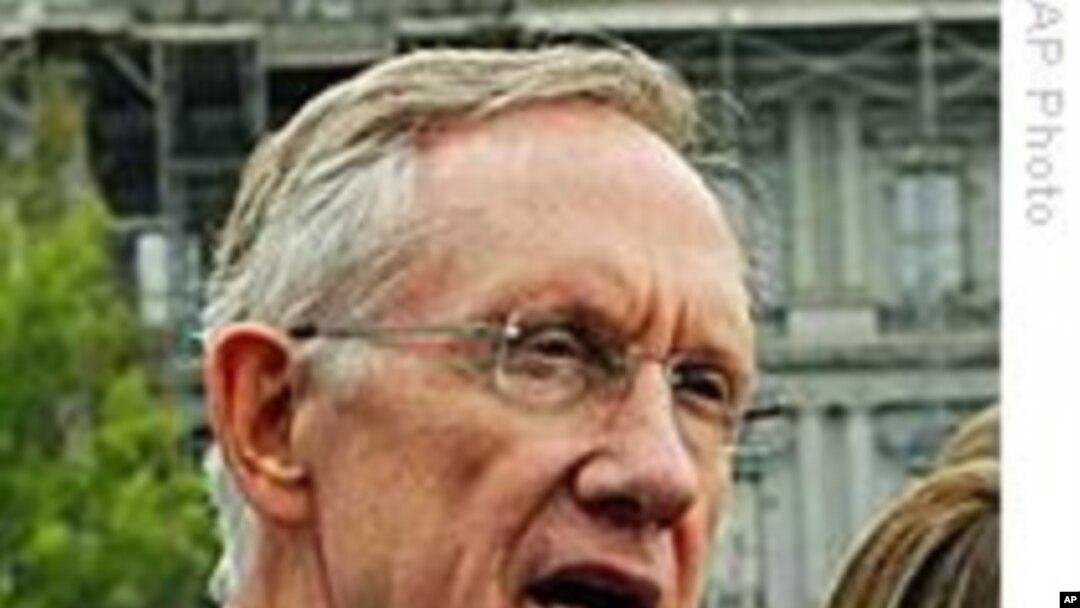<!-- IMAGE -->
U.S. Senate Majority Leader Harry Reid said Monday his chamber's health care reform bill will include a government-run insurance plan that states could participate in voluntarily. A government-run alternative to private health insurance has been extremely controversial in the national debate over reforming America's health care system.
Attention has been focused on Senator Harry Reid, a Democrat from Nevada, as he works behind closed doors to try to meld two different committee versions of health care legislation into one bill for the full Senate to debate.
President Barack Obama says reforming the U.S. health care system is his top domestic priority. But an overwhelming majority of Republicans do not support the plans that congressional Democrats have been hammering out. And even some Democrats have been debating whether a reform bill should include a government-run insurance plan, known as a "public option."
Senator Reid told reporters on Monday that the bill he plans to send to the Senate floor will include a government-run plan.
"I believe that a public option can achieve the goal of bringing meaningful reform to our broken system," said Harry Reid. "It will protect consumers, keep insurers honest and ensure competition."
Liberals within the Democratic Party have been fighting for a public option, saying that it is the only way to spur private insurance companies to keep costs down and offer affordable plans to consumers.
Conservative Democrats and most Republicans are skeptical of a public option, saying it would lead to nationalized health care in the United States.
Reid has had the tricky task of trying to get all 60 Democrats in the Senate to back a single health care proposal, to prevent Republicans from delaying a vote on the Senate floor by engaging in extended debate and procedural tactics, or filibustering.
Reid said that the legislation he is proposing would allow states not to participate in the public option. He said states would have until 2014 to opt out of the program, calling it the "fairest way to go."
Reid admitted that by including a public option in the Senate's health care reform bill, he likely would lose the support of Olympia Snowe of Maine - the only Republican senator who might vote for the legislation.
Reid said he is always looking for Republicans to work with, but added that they are getting harder and harder to find.
"When I came here to the Senate, we had a lot of moderate Republicans who worked with us on everything, and we worked with them," he said. "But, of course, now the moderates are extremely limited. I could count them on two fingers."
There has been more support for a government-run health insurance program in the House of Representatives, which has a larger Democratic majority. Health care reform bills have to be passed in both chambers and then reconciled into one piece of legislation and approved before it can go to the president for his signature. Mr. Obama has made clear he wants health care reform to be passed this year.
In a statement on Monday, White House Press Secretary Robert Gibbs said the president is pleased that the Senate has decided to include a public option, and that he supports it because it has the potential to hold insurance companies accountable through choice and competition.
Private insurance companies strongly oppose a government-run program, saying it could force them out of the health care coverage market.


